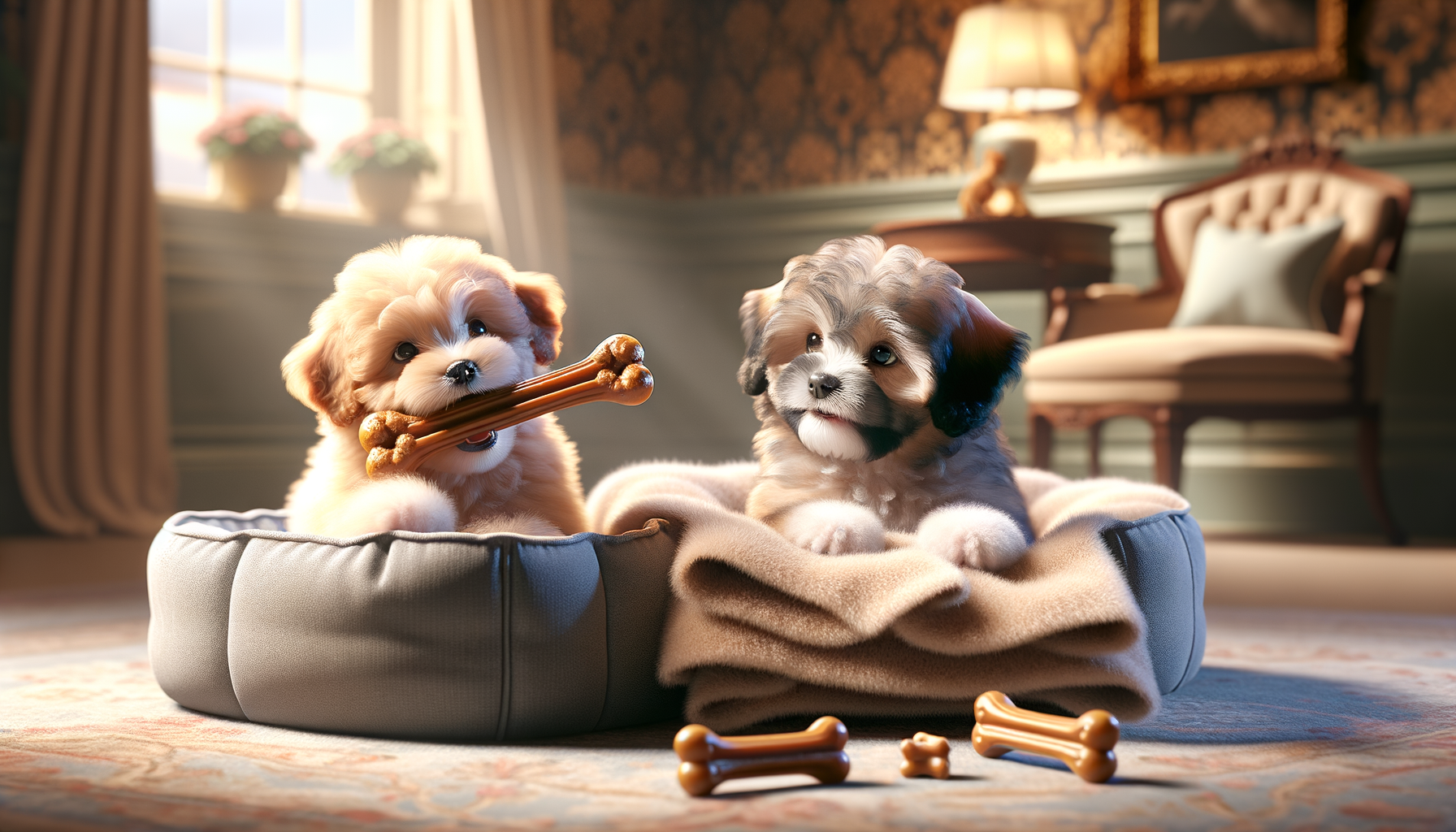
Understanding and Caring for Shih-Poo Puppies
Introduction to Shih-Poo Puppies
Shih-Poo puppies, a delightful mix of Shih Tzu and Poodle breeds, are gaining popularity among dog lovers for their charming personalities and adorable looks. These small, fluffy companions are known for their playful nature and adaptability, making them suitable for families, singles, and seniors alike. Understanding the unique characteristics of Shih-Poo puppies is essential for providing the best care and ensuring they grow into well-mannered adult dogs.
One of the appealing traits of Shih-Poo puppies is their hypoallergenic coat, inherited from their Poodle parent. This feature makes them an excellent choice for individuals with allergies, as their coat tends to shed less. Additionally, Shih-Poos are known for their intelligence and trainability, traits that can be attributed to both parent breeds. However, these puppies also require consistent training and socialization to develop into well-adjusted pets.
In this article, we will explore various aspects of Shih-Poo puppies, including their temperament, grooming needs, training tips, health considerations, and more. Whether you are a first-time pet owner or an experienced dog enthusiast, understanding these key areas will help you provide a loving and nurturing environment for your Shih-Poo puppy.
Temperament and Behavior
Shih-Poo puppies are renowned for their friendly and affectionate nature. They tend to form strong bonds with their human companions and enjoy being the center of attention. This breed is typically sociable and gets along well with children and other pets, making them a great addition to any household.
The temperament of a Shih-Poo can vary depending on the characteristics inherited from their parent breeds. While they are generally playful and energetic, some may exhibit a more laid-back demeanor. It is crucial to spend time understanding your puppy’s individual personality to tailor your care and training approach accordingly.
Socialization is a key aspect of raising a well-behaved Shih-Poo. Introducing your puppy to various environments, people, and other animals from an early age can help reduce any anxiety or fearfulness they may experience. Encouraging positive interactions and rewarding good behavior will foster a confident and happy pet.
- Friendly and affectionate nature
- Strong bonds with human companions
- Sociable with children and other pets
- Varied temperament based on parent breeds
- Importance of early socialization
Grooming Needs
Shih-Poo puppies require regular grooming to maintain their coat’s health and appearance. Their hypoallergenic coat, while an advantage for allergy sufferers, can be prone to matting if not properly cared for. Regular brushing, at least two to three times a week, is essential to prevent tangles and keep their coat looking its best.
In addition to brushing, Shih-Poos may require regular trimming, especially around the eyes and ears, to prevent irritation and infection. Many owners choose to have their Shih-Poo professionally groomed every six to eight weeks to ensure their coat remains manageable and clean.
Bathing should be done as needed, typically once a month, using a gentle dog shampoo to avoid skin irritation. Regular ear cleaning, teeth brushing, and nail trimming are also important aspects of a Shih-Poo’s grooming routine. Keeping up with these tasks will help prevent common issues such as ear infections, dental problems, and overgrown nails.
- Regular brushing to prevent matting
- Professional grooming every six to eight weeks
- Monthly bathing with gentle dog shampoo
- Routine ear cleaning, teeth brushing, and nail trimming
Training Tips for Shih-Poo Puppies
Training your Shih-Poo puppy can be a rewarding experience, as they are known for their intelligence and eagerness to please. Starting training early is crucial to establish good habits and prevent unwanted behaviors. Consistency, patience, and positive reinforcement are key components of successful training.
Basic obedience commands such as sit, stay, and come should be introduced early on. Using treats and praise as rewards will motivate your puppy to follow commands and learn new skills. It’s important to keep training sessions short and engaging to maintain your puppy’s interest and prevent boredom.
Socialization should also be a part of your training regimen. Exposing your Shih-Poo to various people, pets, and environments will help them become well-rounded and confident. Puppy classes can be a great way to facilitate socialization while also providing structured training in a group setting.
- Start training early for best results
- Use consistency, patience, and positive reinforcement
- Introduce basic obedience commands
- Incorporate socialization into training
- Consider puppy classes for structured learning
Health Considerations
Like all breeds, Shih-Poo puppies can be prone to certain health issues that potential owners should be aware of. Regular veterinary check-ups are essential to monitor your puppy’s health and catch any potential problems early. Vaccinations, parasite prevention, and dental care should also be part of their health routine.
Common health concerns for Shih-Poos include dental issues, ear infections, and allergies. Their small size can also make them susceptible to joint problems, so maintaining a healthy weight through proper diet and exercise is important. Providing a balanced diet that meets their nutritional needs will support their overall health and well-being.
Being proactive about your Shih-Poo’s health can help prevent many common issues. Regularly cleaning their ears, brushing their teeth, and monitoring their weight are simple yet effective ways to ensure your puppy stays healthy and happy. Consulting with a veterinarian for personalized advice and recommendations is always a wise choice.
- Regular veterinary check-ups
- Vaccinations and parasite prevention
- Common health concerns: dental issues, ear infections, allergies
- Importance of maintaining a healthy weight
- Balanced diet for nutritional needs


